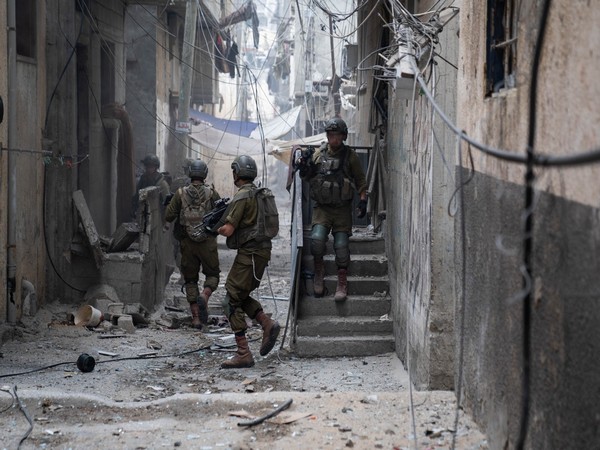Doha [Qatar], November 24: The emirate of Qatar has further boosted its status as a specialist power in resolving delicate hostage situations by using its influence to help secure the release of hostages by Palestinian militant group Hamas. Analysts say Qatar has honed a careful balancing act, allowing it to marry warm relations with Western powers while keeping ties with radical groups and states regarded as pariahs even by close allies.
Qatar's Foreign Ministry spokesman Majed Al-Ansari told AFP the breakthrough ceasefire deal on Wednesday morning had underlined the country's singular diplomatic position. "This is what we can do that nobody else can do and this is us using all of our abilities," he said. "We've geared the whole country towards this. If it doesn't work, all hell will break loose," he added.
The West is increasingly using the influence of the small but gas-rich Gulf Arab state ruled by Emir Tamim bin Hamad Al-Thani in these situations, with the role of Qatar also crucial to the release in September of five Americans held by Iran.
While Egypt has traditionally in recent years served as the main mediator between the Zionist entity and Palestinian groups, and Turkey under President Recep Tayyip Erdogan also made no secret of its desire to be involved, the focus was on Qatar helping to return hostages safely. Behind the scenes, Qatar was triangulating between the Zionist entity and Hamas and Qatari ambassadors had met with the families of hostages around the world, Ansari said.
Pitfalls
"They know that there are children, there are women, there are families that are suffering every day, from the lack of information from the fact that they don't know what is happening with their family members right now. So, it's a renewed sense of duty on us," he said. Qatar has hosted Hamas's political office for more than 10 years but is also home to the largest US military base in the region.
"Qatar has an advantage that the other candidates for negotiation do not have: it has housed the political leadership of Hamas" for the last decade, said Hasni Abidi, director of the Geneva-based Center for Studies and Research on the Arab World and the Mediterranean.
That is the only entity authorized to negotiate on behalf of Hamas and the Ezzedine al-Qassam Brigades, the armed wing of the Palestinian Islamist movement, Abidi added. Qatari money has helped Hamas pay the salaries of its civil servants, while the current emir's father and predecessor Hamad Bin Khalifa Al-Thani even visited Gaza in 2012.
But the position is not without potential pitfalls for the Gulf state. Two weeks into the conflict in Gaza, the US cautioned its ally that there could be "no more business as usual with Hamas". Last month, Qatar told the U.S. it was open to reconsidering the presence of Hamas in Qatar once the crisis is resolved.
Taleban office
The first glimmer of hope came in October when US hostages Judith Tai Raanan and her daughter Natalie Shoshana Raanan were released and returned to the Zionist entity. After that release, French President Emmanuel Macron hailed Qatar's "very important role". Two more Zionists were subsequently released.
World Jewish Congress president Ronald Lauder on Wednesday offered Doha the body's "profound gratitude ... for their significant role in facilitating the impending release". It was with Qatar that $6 billion of frozen Iranian funds from South Korean banks was parked pending the release in a hugely complex and sensitive swap deal of the five American citizens held by Iran.
The emirate had also invited the Taleban to open an office in Doha with the approval of the United States, making it possible to negotiate the withdrawal of American forces from Afghanistan in 2021. Qatar also played a role in the release in 2013 of a Swiss teacher kidnapped in Yemen and in the release of hostages in Mali the same year.
Most recently, on October 16, while all eyes were on Gaza, Qatar announced that it had repatriated Ukrainian children who had been abducted by Russia during the invasion. In its work Qatar has now largely overshadowed Egypt, which helped secure the 2011 release of Zionist soldier Gilad Shalit after more than five years being held by Hamas. "It is precisely the accumulation of these successful mediations which has also made Qatar an essential interlocutor," said Abidi. - AFP
Source: Kuwait Times

